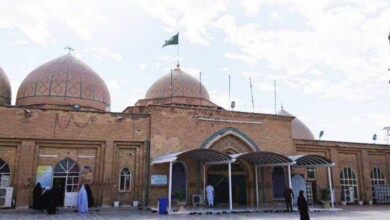Arwa bint al-Harith: A fearless voice of justice and equality
Arwa bint al-Harith was the daughter of Al-Harith ibn Abd al-Muttalib and Ghaziyya bint Qays, hence a cousin of Prophet Muhammad (peace be upon him). A member of the Quraysh, she was raised in a prominent and influential family known for its leadership in Mecca. Her lineage not only connected her to the Prophet but also placed her in a position to engage with some of the most critical political and social developments of her time.
Her family’s status within the Quraysh meant that Arwa was well-educated and had a deep understanding of tribal politics and the importance of justice and fairness. This upbringing shaped her into a woman of intellect and courage, unafraid to speak her mind when necessary.
She was renowned for her eloquence and ability to articulate her thoughts clearly and persuasively. In an era where poetry and rhetoric were highly valued, her speech skills set her apart as an influential figure. She was known to give advice and criticism to rulers and leaders, particularly emphasising justice and accountability.
One of the most famous incidents involving Arwa was her bold confrontation with Mu’awiya ibn Abi Sufyan, the founder of the Umayyad Caliphate. Despite his powerful position, she did not hesitate to remind him of his past actions against Islam and the struggles of the Prophet and his family. Her words were a call for justice and righteous leadership, showing her fearless nature and dedication to truth.
Mu’awiya had once been a staunch opponent of Islam before converting and later becoming a political leader. His reign was marked by political conflicts, and Arwa saw the need to remind him of his responsibilities.
Mu’awiya, though a strong leader, was reportedly taken aback by her directness and rhetorical skill. Such an interaction highlights the respect and influence that Arwa held, even in a male-dominated society.
Arwa’s story shows the active participation of women in the early days of Islam, unlike the prevalent misconceptions that women in the past were always silent or passive. Early Muslim women played crucial roles in preserving Islamic teachings, providing counsel, and actively participating in social and political debates. Their influence was evident in how they shaped moral and ethical discourses during and after Prophet Muhammad’s (PBUH) lifetime.
While Arwa bint al-Harith may not be as widely recognised as some other historical figures, her legacy lives on as a symbol of courage, wisdom, and eloquence.



